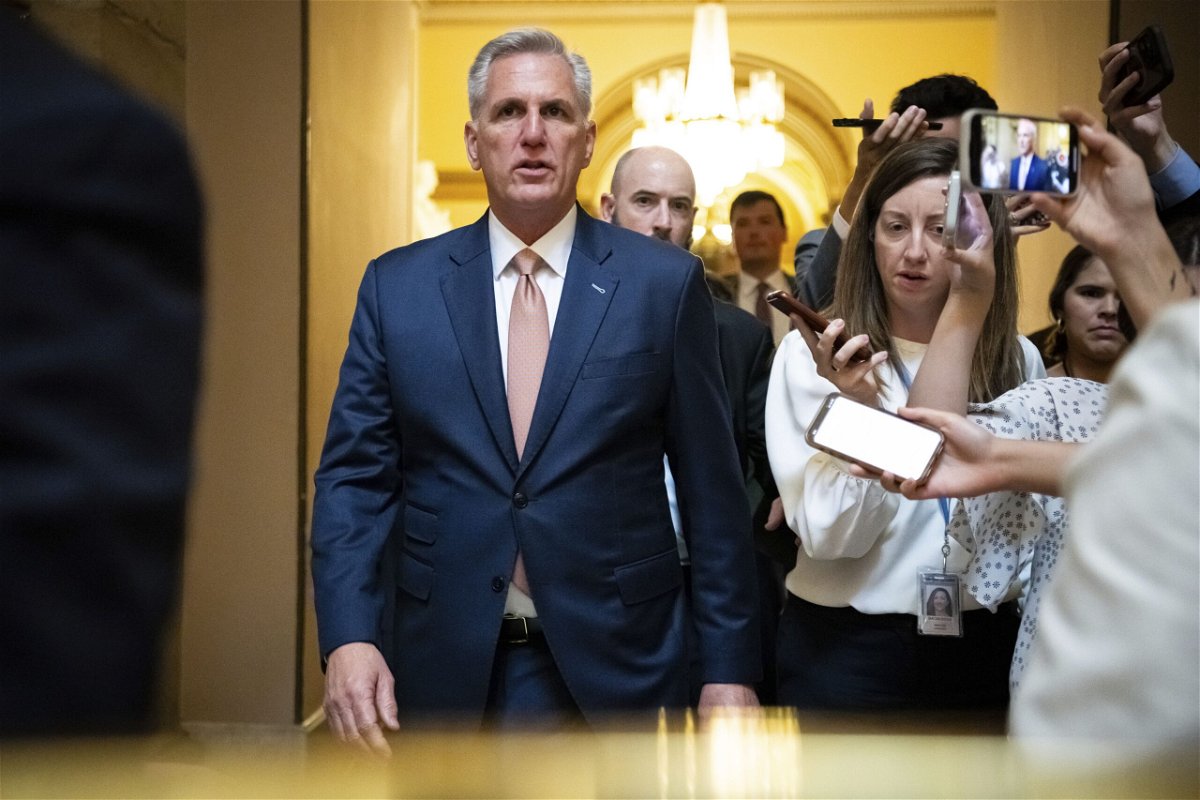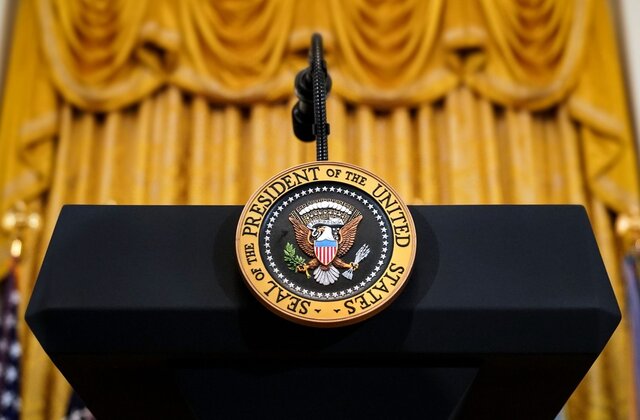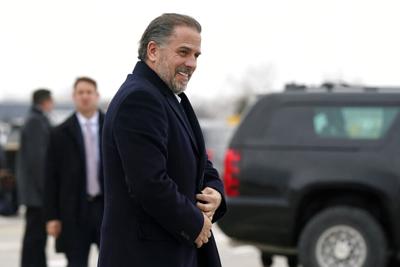With pressure mounting to avert a government shutdown, heightened by culture war demands from House conservatives burned by previous brawls, the House speaker faces a difficult decision – risk a shutdown or risk the gavel.
That was 2015. But 2023 is treading a similar course.
For former House Speaker John Boehner, it was the final chapter in a lengthy standoff with House conservatives that contributed to his resignation from Congress after 25 years and almost five in the top job. For current House Speaker Kevin McCarthy, just seven months into his tenure, the outcome remains an open question.
With a looming deadline to fund the government and much left to be accomplished upon Congress’ return from recess, McCarthy and other congressional leaders expressed willingness earlier this month to pass a stop-gap measure to keep the government funded, buying lawmakers more time to work out the 12 appropriations bills they’ve been pursuing. But demands from the House Freedom Caucus have complicated the effort and put McCarthy in yet another bind from the right that analysts say could be the one to put his leadership position on the line.
“This is now the most important fight he faces as speaker and the choice between kind of the campaigning arm, the House Freedom Caucus arm, and the actual governing arm of keeping a government running,” says Casey Burgat, the director of the Legislative Affairs Program at George Washington University’s Graduate School of Political Management.
McCarthy has walked a fine line with the conservatives since the speaker battle, when they took him 15 grueling rounds before granting him his win, and in turn gained the power to bring up a vote for his ouster, lowering the threshold to just a single lawmaker.
So when the House Freedom Caucus announced it would oppose a stop-gap measure to keep the government funded unless certain conservative provisions are includes – like addressing DOJ “weaponization” and ending “woke” Pentagon policies – it prompted a confrontation with McCarthy that’s been brewing and bubbling in fits and starts for months, ready to boil over.
Such legislation would lose support among House Democrats and face steep odds in the Democrat-controlled Senate, making a shutdown likely. But without the support of conservatives on a clean continuing resolution and only a few votes to spare in the GOP narrow majority, McCarthy will likely need to rely on Democrats to approve a stop-gap measure – a move sure to provoke the hard-liners in his caucus.
“This is where his choice comes in,” Burgat says. “If he takes Democratic support, which likely he’ll need to do, then that opens himself up to at least a motion to vacate because it only takes one now.”
The contours of the standoff were previewed during the debate over the debt ceiling, as House conservatives demanded controversial spending cuts and policies that put McCarthy in a difficult negotiating position with Democrats and the White House. Ultimately, Democratic votes on the debt ceiling agreement outnumbered Republicans in the House in a turn of events that infuriated some members of the House Freedom Caucus.
That same small but vocal minority – numbering in the mid-30s out of 222 Republicans in the chamber, though the caucus doesn’t publicize the exact number – made their frustration known just days later, when they blocked a routine vote, sending the chamber into a week-long gridlock. At the chamber’s reunification, McCarthy told reporters they had agreed to “sit down and talk more” in future spending negotiations. And shortly after, Republican appropriators agreed to mark up the 12 spending bills well below the levels agreed to in the debt ceiling deal in what appeared to be a major concession made to the House Freedom Caucus that has colored the funding process so far.
But this time, emboldened by the shortcomings in the last fiscal battle, they may come out with a greater show of force, as McCarthy faces what political science professor Rob Mellen Jr. calls a “no win situation.”
“I think this might be the fight they’re willing to go to the mat for,” says Mellen, of the University of South Florida. “That this time if he really doesn’t feel like he’s going to compromise with them and give them what they want, that they may be willing to just say, ‘Hey, we’ll shut this down. We’ll go that direction, and we’ll remove you if you go to the Democrats.’”
Members of the Freedom Caucus have for months suggested that they would be willing to let the government shut down if they don’t agree with the funding package. Indeed, for the conservatives, who largely hail from safe districts, there isn’t much to lose, as analysts note that if the government shuts down and Republicans are blamed, the conservatives won’t be on the chopping block like their colleagues in swing districts.
But some have noted that for the Freedom Caucus, perhaps armed with the understanding that their demands have little chance of becoming reality, the ultimate goal may be McCarthy’s removal after all.
“It just puts McCarthy in this bind and sort of forces his hand almost to do what he did before, which is get the government funded with Democratic votes, and in so doing, they can respond by triggering a call for his removal,” says David C. Barker, professor of government and director of the Center for Congressional and Presidential Studies at American University. “And I think that’s what they’re agitating toward. That’s what they want. That’s kind of what they wanted from the beginning. And they’ve been looking for a mechanism to do it. And I think maybe all along they’ve planned on this being the one.”
True to form, Rep. Ronny Jackson of Texas didn’t mince words about McCarthy’s dilemma with the Freedom Caucus last week, calling a motion to oust McCarthy “inevitable” if he continues to rely on Democrats.
“McCarthy’s going to have to listen to the people on the right or else he’s going to have to rely on the Democrats to pass this,” Jackson said on Steve Bannon’s “War Room” podcast. “But I’m telling you if that happens, I mean, it’s going to be detrimental to leadership in the House if they blow off the concerns of the people like myself and Freedom Caucus and some of the other people on the right that are making reasonable demands in this process – it’s going to be a problem.”
Whether McCarthy can rely on Democrats to back a CR is one thing. But whether they’ll protect his gavel is another matter altogether.
Some dynamics suggest at least some Democrats would come to his aid, like reports of a coalition of Democrats offering McCarthy a deal during the debt ceiling fight that they would help him keep his job should he responsibly raise the debt ceiling. Another calculation for Democrats is McCarthy’s possible replacement, who likely wouldn’t align more closely with their positions, making McCarthy’s retention arguably in Democrats’ best interest.
But even if McCarthy survives a motion for his ouster with the help of Democrats or calls conservatives’ bluff and his speakership isn’t ultimately threatened, analysts say his hold on the conference will remain shaky and his ability to get things done stunted.
“He can only afford to lose four. And if there’s 40 that are just mad at him all the time, then they’re going to be reluctant to support him even if it’s on things that they want to,” Burgat says. “They’ve proven willing to shut down the chamber even when it’s run by their own party. And so, as much as he’ll defang them on this one vote, he’ll need them again for any Republican priorities to be passed out of the House heading into an election year.”
It’s a dynamic that haunted Boehner for years and ultimately contributed to his early departure. And the House Freedom Caucus has only grown bigger and more brash, releasing statements and listing demands publicly, while McCarthy’s margin is just a fraction of what the former speaker’s was in 2015.
“McCarthy is closer to being one of them than Boehner ever was,” Barker says. “Boehner really was more of a traditional Chamber of Commerce-type of Republican whereas McCarthy stylistically and policy-wise for some time now has been a MAGA-friendly flame thrower right in line with them. He certainly was during the Trump years. And so, you know, it just shows their willingness to eat their own.”
Unlike McCarthy, Boehner was already on his way out, planning to resign months later, when he made the decision to step down. Even then, he noted that had he not been planning to leave, he wouldn’t have done so when talk of a motion to vacate began swirling.
“It was never about the vote. There was never any doubt about whether I could survive a vote, but I don’t want my members to have to go through this, and I certainly don’t want the institution to go through this, especially when I knew I was thinking about walking out the door anyway,” he told reporters at the time.
When asked what advice he would give to McCarthy, then his presumed successor, he urged the California Republican to protect the institution. And when questioned by another reporter about whether the next speaker would ultimately face the same fate, he earnestly replied.
“Hopefully not.”







